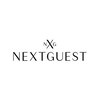Hotel Website Analytics: Is There Such Thing as Free Lunch?
A Comparative Analysis of Adobe SiteCatalyst and Google Analytics

Introduction
Digital marketing is all about results. Unlike offline marketing, in the online and mobile space we can track and analyze ROIs from our online marketing campaign results quickly and accurately over the Internet. There is no medium that allows tracking like the Internet does, yet in hospitality, we didn"t adopt these tracking technologies at first introduction. Instead, we relied on cheap or free analytical tools to provide us with important information used to make major decisions. As a result, we are often basing integral marketing decisions on inferior information.
We consistently receive numerous questions from hoteliers concerning just how to most efficiently track and measure the ROI of online marketing efforts, right down to the reservation process. What metrics should hoteliers measure and pay attention to? What are the best practices in measuring ROI from the hotel"s marketing efforts? Or ROI from the hotel website? What are the best analytical tools out there?
In today"s dynamic market, where occupancy rates and ADRs depend on how well hoteliers utilize Internet marketing, it is no longer sufficient to measure only basic website traffic stats like visitors and page views or campaign stats like banner click-through rates and PPC clicks. Website and campaign conversions, ROIs, pathing and behavioral metrics have become standard, and many hoteliers are turning to more sophisticated tools to measure these essential metrics.
The Eternal Question: Paid vs. Free Analytics?
Best practices and common business sense require hotel digital marketers to constantly track and analyze website and campaign conversions as well as ROIs, pathing and behavioral metrics to shift marketing funds from less effective marketing campaigns to campaigns with higher ROIs. In our view, this complex analytics is impossible to perform with existing free analytical tools. Hoteliers have to adopt sophisticated analytical tools that provide the capabilities mentioned in this article. When budgeting for Internet marketing, hoteliers should include a separate line item for website and marketing analytics.
No doubt a sophisticated analytical tool can save hoteliers a great deal of marketing dollars, but a quality tool can also exploit marketing opportunities. This level of intelligence can redirect limited marketing dollars to more profitable centers. In other words, it can transform the hotel Internet marketing strategy and take it to the next level.
So the question is: do you adopt a free solution or go with a more sophisticated paid web analytics solution?
In this article we will compare two leading website analytics and campaign tracking applications: Adobe SiteCatalyst (paid) and Google Analytics (free basic version). Both applications are used to measure website performance and monitor online marketing initiatives—successes, losses, gains, and opportunities. Google Analytics" basic version is a free service, available to anyone on the web, while Adobe SiteCatalyst is only available to those who pay for it. But is free really the best way to go? Below, we"ll examine whether or not paying for a service such as Adobe SiteCatalyst will get you and your clients better results.
Customization
Google Analytic"s free services allow four conversion goal funnels with five custom variables for a total of 20 different combinations of variables. Adobe SiteCatalyst"s paid service, on the other hand, has hundreds of combinations, with 100 custom event metrics, 75 custom event variables, 75 custom page variables, custom variable attribution, and more. It also offers site sectioning and a site hierarchy.
Custom Reports & Dashboards
One of the most important uses of Google Analytics or SiteCatalyst is attributing where a hotel is losing customers. Where are the conversion points? Where are potential customers bouncing out? Close analysis allows us to attribute success (or improvement) to particular marketing initiatives, segment visitors, and decide the true long term value of a campaign.
Dealing with such a great amount of data can prove to be difficult, and Adobe SiteCatalyst makes it somewhat simpler. SiteCatalyst offers unlimited dashboards per login, displaying different information targeted for different purposes. Reports can be generated and sent to clients via menu interface, bookmarking, direct linking, and, of course, email. As an added bonus, multiple users can easily collaborate on reports.
Google Analytics allows only one dashboard per login, and these reports and dashboards can only be shared through email. This is prohibitive, limiting the number of opportunities to help find unreached customer bases, campaigns that need improvement, and more.
Segmentation
With the launch of the new v15, Adobe SiteCatalyst has expanded its segmentation capabilities many times beyond those of Google Analytics. SiteCatalyst has the ability to segment "on the fly," allowing users to quickly dissect an array of visitors to unveil special characteristics.
Pathing
Both SiteCatalyst and Google Analytics offer basic page-to-page pathing, but this is where their similarities end. Google Analytics offers four goal conversion tunnels for users. SiteCatalyst boasts three-level direct paths, unlimited seven-level funnels, and path finder. These extras allow users to see conversion process holes, traffic movement between sites, sections, or campaigns, and visit segmentation beyond entry points. Only SiteCatalyst offers such a wide glance.
Mobile Website Analytics
The rise in mobile internet usage has placed an increased importance on tracking activity on mobile website and apps. Previously, marketers have had limited ability to study this data. SiteCatalyst provides more than twenty out-of-the-box mobile reports that show anything from which device a visitor was using to the screen size of that device. These reports allow for the analysis of how visitors engage with site content and flow through the mobile site. The mobile reports in SiteCatalyst combined with custom segmentation prove far greater those offered by Google Analytics. In addition, SiteCatalyst can track these mobile specifications on the normal sites whereas Google Analytics is limited to the iPhone, Android and Palm Pre.
Attribution
Via the SiteCatalyst Stacking Reports, hoteliers can clearly see the contribution of branded hotel keywords vs. generic keyword terms to each booking. Google Analytics can report that the booking came from the branded hotel term, when in fact the original visit to the site came from a generic keyword term, and when the user liked the hotel and all that the hotel had to offer, the user came back using the hotel name (branded keyword term) and booked. SiteCatalyst clearly shows the decision making path of the user vs. Google analytics which shows only the last click during the second visit.
Adobe SearchCenter
HeBS Digital has been using Adobe SearchCenter since its introduction. All HeBS clients are given 24/7 access to their SearchCenter account, where they can monitor in real time how their paid search campaigns are performing, revenue, ROAS, etc.
Adobe SearchCenter helps hoteliers drive success by automating keyword bidding and by combining multiple search engines in one easy-to-use interface. Automated bid strategies and alerts help marketers evaluate and respond to changing bid conditions thus saving as much as 30%-40% of paid search marketing spend. Adobe SearchCenter helps marketers target the right audience, measure and achieve tangible ROI all in one easy-to-use solution.
Data Download & Upload
The biggest caveat to using Google Analytics is the issue of data. If one is using Google to run their analysis, Google owns all of the data. This data is available for a limited export only. In SiteCatalyst, however, the user owns the data, and 50,000 rows of it can be exported (unlimited data can be exported through DataWarehouse). This can be done quickly, essential for publishing and dispersing large monthly reports, Data can also be imported into Omniture.
Expandability
Expandability is important, referring to peripheral applications that add value to the core product, in this case SiteCatalyst or Google Analytics. SiteCatalyst features excellent expandability, relying on the support network of the Adobe Digital Marketing Suite to supplement its findings. Other applications used by Adobe include SearchCenter, Test&Target, and DigitalPulse. It also boasts exceptional integration of third party products such as MSN Bing and Google Adwords.
User Support
Adobe SiteCatalyst"s user support is vastly superior to that of Google Analytic"s. SiteCatalyst offers 24/5 phone, live chat, and email support with trained consultants and engineers, as well as monthly learning labs for its users. On the other hand, Google Analytics offers support for an extra cost, and from independent Google consultants who are not full-time Google employees.
Conclusion:
To sum it all up, SiteCatalyst, though a paid website analytics application, proves to be worth the expense. It offers far more custom metrics and variables than Google Analytics, along with a higher quantity and customization of reports and dashboards for our HeBS Digital client base. Also adding to its superiority is the fact that users own the data described in the many charts and dashboards, and not Adobe itself (unlike Google, whose Analytics information is theirs and theirs alone). In the case of the "free" software (Google Analytics) versus the "paid," lack of cost to use Google Analytics adds up to a great deal of missed opportunities for client analysis and later ROI.
HeBS utilizes the industry"s leading analytical application tool for its clients, utilized by many of the major hotel brands (Marriott, Starwood, Mandarin Oriental, etc.) and online intermediaries such as Expedia. Through HeBS Digital, our client hoteliers can now enjoy the same state-of-the-art analytical tool as the major hotel brands and online intermediaries at a fraction of the cost.
Consider seeking advice from an experienced Internet marketing hospitality consultancy to help you take advantage of the marketing opportunities that result from using a sophisticated web analytical tool. The end results will include the capacity to determine your most important and valuable customer segments and the ability to effectively measure the success of your online marketing campaigns. Most importantly, a more complex web analytical tool will drastically increase customer conversions on your hotel website and enable you to track results in real time ROIs from your online marketing campaigns.
About the Authors and HeBS Digital
Adam Hammock is a Web Analyst and Lindsay Denninger is a Copy+SEO Specialist at HeBS Digital, the hospitality industry"s leading full-service digital marketing and direct online channel strategy firm, based in New York City (www.HeBSdigital.com).
HeBS Digital has pioneered many of the best practices in hotel Internet marketing, social and mobile marketing, and direct online channel distribution. The firm has won more than 185 prestigious industry awards for its digital marketing and website design services, including numerous Adrian Awards, Davey Awards, W3 Awards, WebAwards, Magellan Awards, Summit International Awards, Interactive Media Awards, IAC Awards, etc.
A diverse client portfolio of top-tier major hotel brands, luxury and boutique hotel brands, resorts and casinos, hotel management companies, franchisees and independents, and CVBs are benefiting from HeBS Digital"s direct online channel strategy and digital marketing expertise. Contact HeBS Digital"s consultants at (212) 752-8186 or [email protected].
ABOUT NEXTGUEST
NextGuest provides hoteliers with everything they need to thrive in the digital world, with bespoke technology solutions developed to meet the needs of luxury hotel clients coupled with elegant design capabilities that bring brands to life. We marry the power of data with brand discovery to uncover unique strategies that apply to everything from website design, content marketing, CRM, and more, helping the world's top hotel brands maximize ROI as they acquire, convert, and retain guests throughout the travel planning journey. While each of our services is available on its own, the integrated technologies, marketing, and consulting offerings work together to increase digital engagement and generate revenue for hoteliers, allowing them to focus on what matters most — serving their guests. www.nextguest.com | [email protected]
